Hello, I’m Dr. Candy Akers, a dedicated holistic veterinarian with years of experience in natural pet care. Throughout my career, I’ve encountered numerous cases of puppy warts, a common concern for many pet owners. These small growths, while often benign, can cause distress for both the puppy and its owner. I firmly believe in the power of natural treatments, not just for their efficacy but also for their gentle approach, especially when it comes to our young furry friends. In this blog, I’ll be sharing my insights on natural remedies for treating puppy warts, both in the mouth and on the skin. Drawing from my holistic veterinary background, I aim to provide you with a comprehensive guide that’s both informative and actionable. Let’s embark on this journey towards natural healing together.
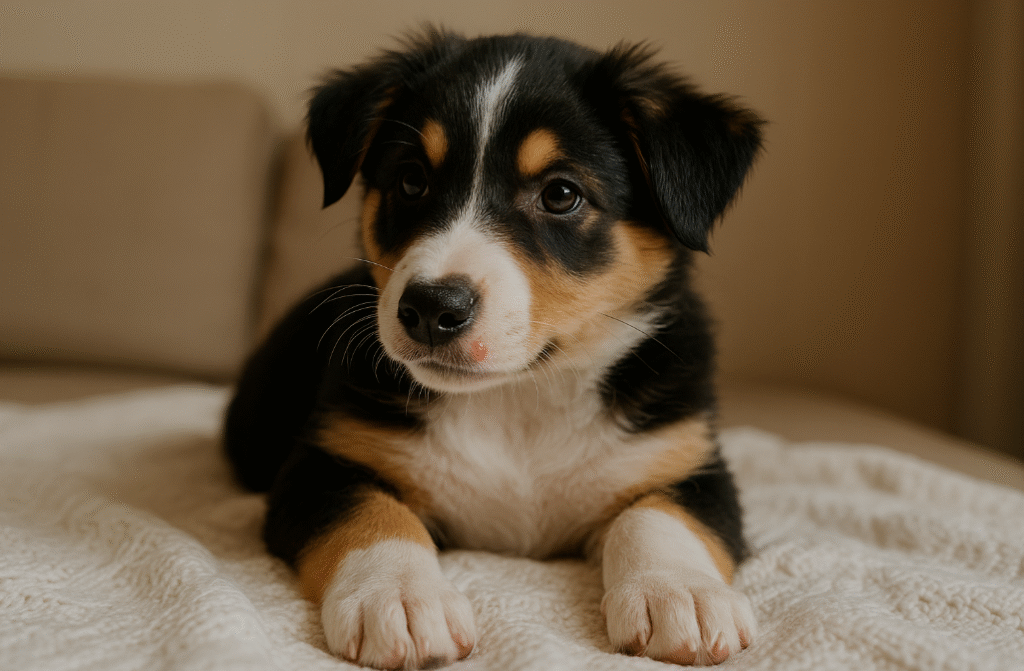
Understanding Puppy Warts
Puppy warts, scientifically known as Canine Papillomas, are small, benign tumors that commonly appear on puppies and younger dogs. They are caused by the Canine Papilloma Virus (CPV) and, while they might look concerning, are typically harmless. However, understanding them is crucial for any pet owner, as it helps in early detection, proper care, and prevention.
1. Types of Puppy Warts
- Mouth Warts: These are the most common type of warts in puppies. They appear inside the mouth, especially on the gums, tongue, and roof of the mouth. They can resemble a cauliflower in appearance and might make it uncomfortable for the puppy to eat or drink.
- Skin Warts: These warts appear on the external skin and can be found anywhere on the body. They are often flesh-colored and have a rough texture.
2. Causes and Transmission
The primary cause of puppy warts is the Canine Papilloma Virus. This virus is contagious among dogs, especially in those with weaker immune systems like puppies. The transmission can occur through:
- Direct contact with an infected dog.
- Sharing toys, bowls, or bedding with an infected dog.
- Being in an environment where an infected dog has been, like dog parks or kennels.
3. Symptoms and Identification
While the warts themselves are the most obvious symptom, there can be other signs to watch out for:
- Excessive drooling, especially if the warts are inside the mouth.
- Bleeding from the warts if they get injured.
- A sudden increase in the number or size of the warts.
- Signs of discomfort or pain in the affected area.
4. Are Puppy Warts Dangerous?
In most cases, puppy warts are benign and pose no serious health risk. However, they can become problematic if:
- They grow large enough to obstruct breathing or eating.
- They become infected or ulcerated.
- There’s a sudden and rapid increase in their number.
It’s essential to monitor the warts and consult a veterinarian if any of the above issues arise.
Puppy warts, while common, are typically not a cause for alarm. However, understanding them is crucial for early detection and care. If you ever notice any unusual growths on your puppy, it’s always a good idea to consult with a veterinarian to ensure your pet’s health and well-being.
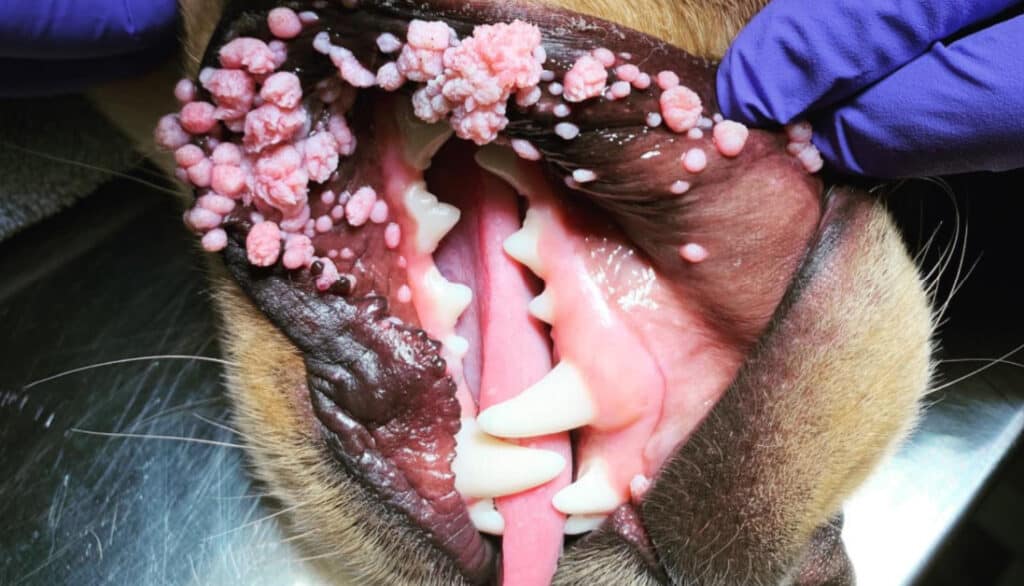
Holistic Vet’s Approach to Treating Warts
As a holistic veterinarian, my approach to treating any ailment, including puppy warts, is rooted in understanding the body as a whole and addressing the underlying causes rather than just the symptoms. When it comes to puppy warts, the presence of these growths often indicates more about the puppy’s overall health than just the presence of the Canine Papilloma Virus.
1. The Nature of Puppy Warts
First and foremost, it’s essential to understand that most puppy warts are benign and self-limiting. This means that, in many cases, they will resolve on their own without any intervention. The body’s natural defense mechanisms, when functioning optimally, can combat the virus and lead to the eventual disappearance of the warts.
2. When to Intervene
While the body often takes care of puppy warts on its own, there are instances where intervention becomes necessary:
- If the warts grow large enough to obstruct the puppy’s ability to eat or breathe.
- If there’s a rapid increase in the number or size of the warts.
- If the warts become infected, ulcerated, or bleed frequently.
In such cases, a more direct approach to treatment might be required to ensure the puppy’s well-being.
3. Boosting the Immune System: The Holistic Approach
The appearance of puppy warts can be a telltale sign that your dog’s immune system needs bolstering. A robust immune system is the body’s primary defense against various pathogens, including the Canine Papilloma Virus. Here’s how a holistic vet might approach this:
- Dietary Adjustments: Ensuring that your puppy is on a balanced, nutritious diet is paramount. Foods rich in antioxidants, vitamins, and minerals can naturally enhance the immune system.
- Natural Supplements: Herbs like Echinacea and Astragalus can be beneficial in boosting immunity. Always consult with a holistic vet before introducing any new supplements to your puppy’s regimen.
- Stress Reduction: Just like in humans, stress can weaken a dog’s immune system. Ensuring a calm environment, regular playtime, and proper rest can help in reducing stress levels.
- Regular Exercise: Physical activity can aid in improving circulation, enhancing mood, and overall well-being, all of which contribute to a stronger immune system.
While puppy warts themselves might not always require direct treatment, their presence can be an indicator of a compromised immune system. As a holistic veterinarian, I believe in addressing the root cause and ensuring that our furry friends are not just free of symptoms, but truly healthy from the inside out.
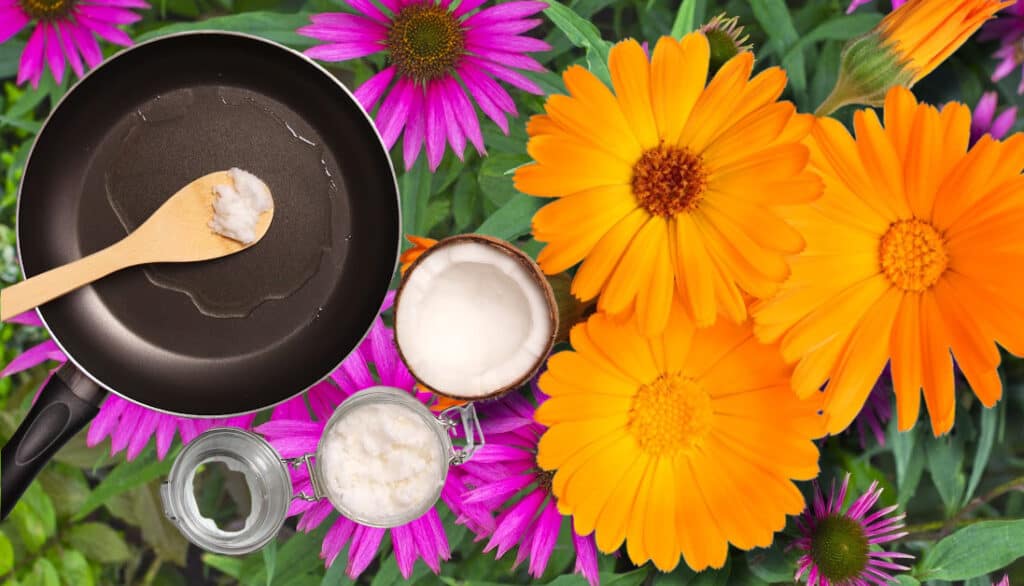
Natural Remedies for Puppy Mouth Warts
Puppy mouth warts, while typically benign, can be a source of discomfort for our furry friends. As a holistic veterinarian, I often lean towards natural remedies that not only address the warts themselves but also bolster the puppy’s overall health. Here are some tried-and-true natural treatments for puppy mouth warts:
1. Echinacea:
- Why it works: Echinacea is a well-known immune booster. By enhancing the immune system, it helps the body naturally combat the Canine Papilloma Virus, leading to the resolution of warts.
- How to use: Echinacea can be given as a supplement, either in tincture form or as capsules. Always consult with a holistic vet for the correct dosage.
2. Calendula:
- Why it works: Calendula has natural antiseptic properties, making it excellent for any oral issues. It can help soothe the mouth and reduce any inflammation associated with the warts.
- How to use: Calendula mouthwash or gel can be applied directly to the warts. Ensure that any product used is safe for ingestion, as puppies might swallow some of it.
3. Coconut Oil:
- Why it works: Coconut oil has antiviral and anti-inflammatory properties. It can help soothe the affected area and may reduce the size and number of warts.
- How to use: Apply a small amount of virgin coconut oil directly to the warts. Most dogs love the taste, so it’s usually well-accepted.
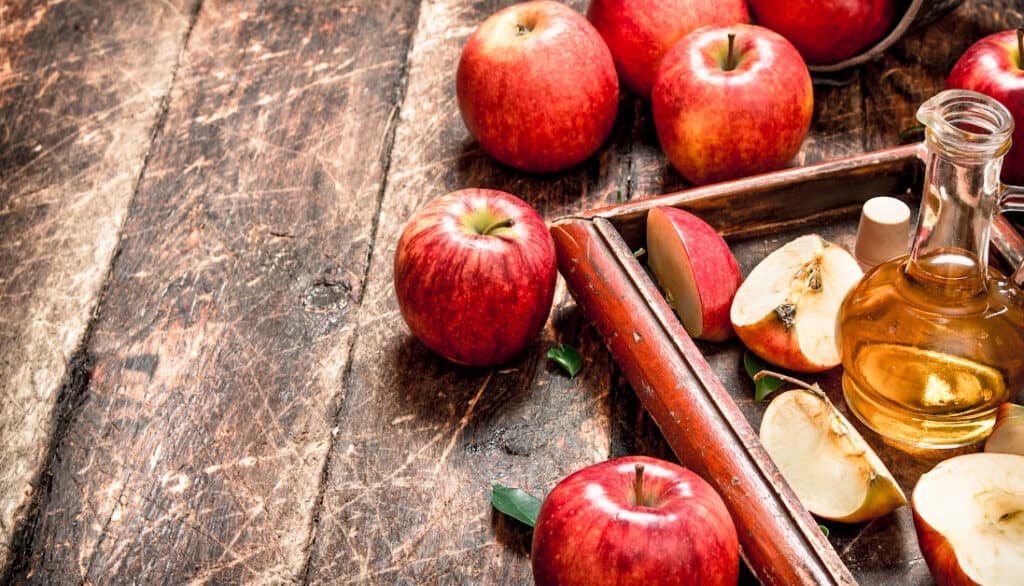
4. Apple Cider Vinegar:
- Why it works: Apple cider vinegar (ACV) can create an acidic environment that might be unfavorable for the virus, potentially reducing the warts.
- How to use: Dilute ACV with water (1 part ACV to 2 parts water) and apply it to the warts using a cotton ball. Be cautious, as some dogs might find this irritating. Always monitor for any adverse reactions.
5. Probiotics:
- Why it works: A healthy gut often translates to a robust immune system. Probiotics can help maintain a balanced gut flora, indirectly aiding in the resolution of warts.
- How to use: Probiotic supplements designed for dogs can be added to their food. Ensure you choose a high-quality product and consult with a vet for the correct dosage.
6. Thuja:
- Why it works: Thuja is a homeopathic remedy often recommended for growths and warts.
- How to use: Thuja pellets can be given orally. It’s essential to consult with a holistic or homeopathic vet for the appropriate potency and dosage.
Natural remedies offer a gentle yet effective approach to treating puppy mouth warts. While these treatments can be beneficial, it’s always crucial to monitor your puppy’s condition and consult with a holistic veterinarian to ensure the best care. Remember, every dog is unique, and what works for one might not work for another.
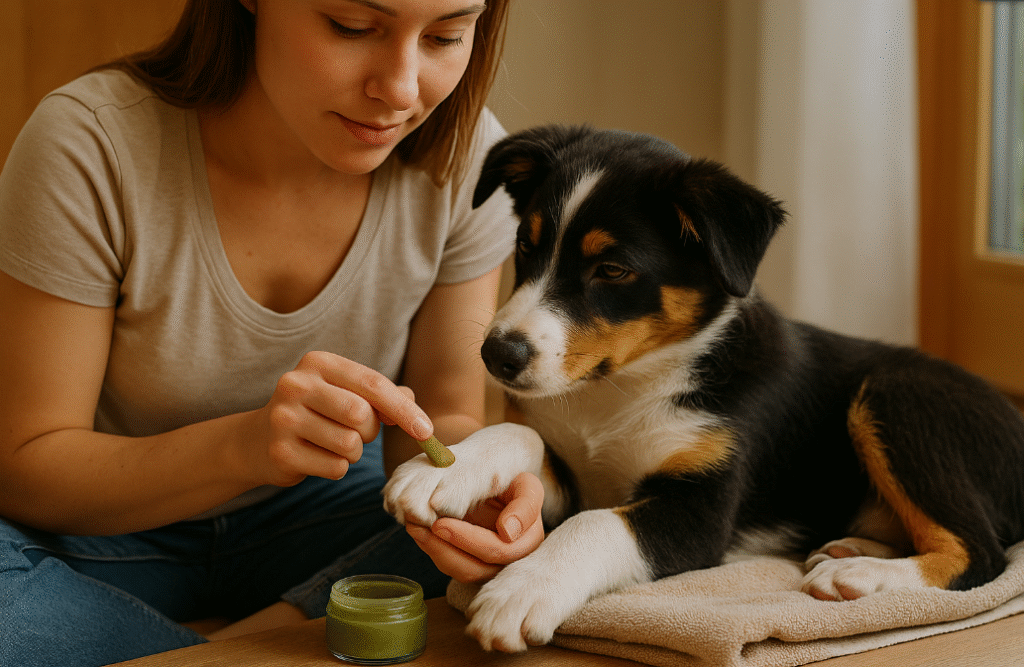
Natural Remedies for Puppy Skin Warts
Puppy skin warts, though typically not harmful, can sometimes be a cosmetic concern or cause discomfort if located in areas where they might be rubbed or scratched. As a holistic veterinarian, I advocate for natural remedies that are gentle on the puppy’s skin while addressing the root cause. Here are some effective natural treatments for puppy skin warts:
1. Castor Oil:
- Why it works: Castor oil has been traditionally used for various skin ailments due to its anti-inflammatory and immune-boosting properties. It can help soften and reduce the size of the warts.
- How to use: Apply a small amount of castor oil directly to the wart using a cotton ball. Secure with a bandage if necessary to prevent the puppy from licking it off.
2. Lemon Juice:
- Why it works: The acidic nature of lemon juice can help in reducing the size and appearance of warts.
- How to use: Apply fresh lemon juice directly to the wart using a cotton ball. Monitor for any skin irritation.
3. Vitamin E:
- Why it works: Vitamin E is an antioxidant that promotes skin health and healing.
- How to use: Break open a vitamin E capsule and apply the oil directly to the wart. This can help in softening and healing the affected area.
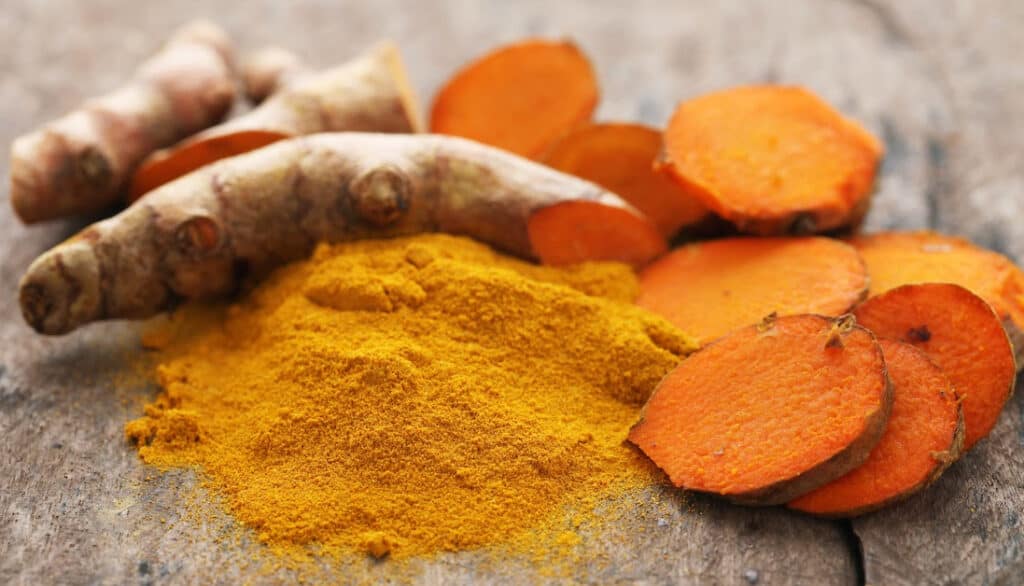
4. Turmeric:
- Why it works: Turmeric is known for its anti-inflammatory and antiseptic properties. It can help reduce inflammation and promote healing.
- How to use: Make a paste using turmeric powder and a little water. Apply this paste to the wart and let it dry. Wash off after a few hours.
5. Immune-Boosting Foods:
- Why it works: Boosting the puppy’s immune system can help in naturally combating the virus causing the warts.
- How to use: Incorporate immune-boosting foods like blueberries, spinach, and sweet potatoes into the puppy’s diet. Always introduce new foods gradually and in moderation.
Natural remedies for puppy skin warts offer a gentle approach to treatment, focusing on both the external symptoms and the overall well-being of the puppy. While these methods can be beneficial, it’s essential to observe your puppy for any adverse reactions and consult with a holistic veterinarian for tailored advice.
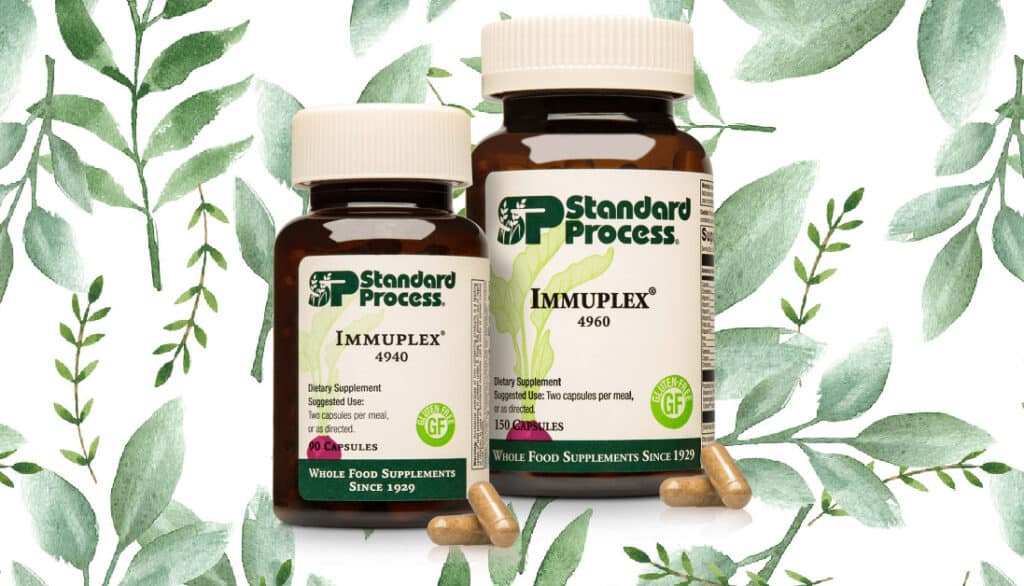
Standard Process Immuplex for Treating and Preventing Puppy Warts
In the realm of holistic veterinary medicine, we often look to whole food supplements to support the body’s natural healing processes. One such supplement that has garnered attention for its potential benefits in treating and preventing puppy warts is the Standard Process Immuplex.
1. What is Standard Process Immuplex?
Standard Process Immuplex is a whole food supplement designed to support the body’s immune system. It blends essential nutrients from various sources, such as spleen, thymus, and liver extracts, along with vitamins and minerals, to provide comprehensive immune support.
2. How Can It Help with Puppy Warts?
- Immune System Boost: The primary cause of puppy warts is the Canine Papilloma Virus (CPV). A robust immune system can combat this virus more effectively, reducing the appearance and duration of warts. Immuplex is designed to bolster the immune system, making it a potential ally in the fight against CPV.
- Nutrient-Rich Composition: The blend of vitamins, minerals, and glandular extracts in Immuplex provides a holistic approach to health, ensuring that the body has the necessary nutrients to function optimally.
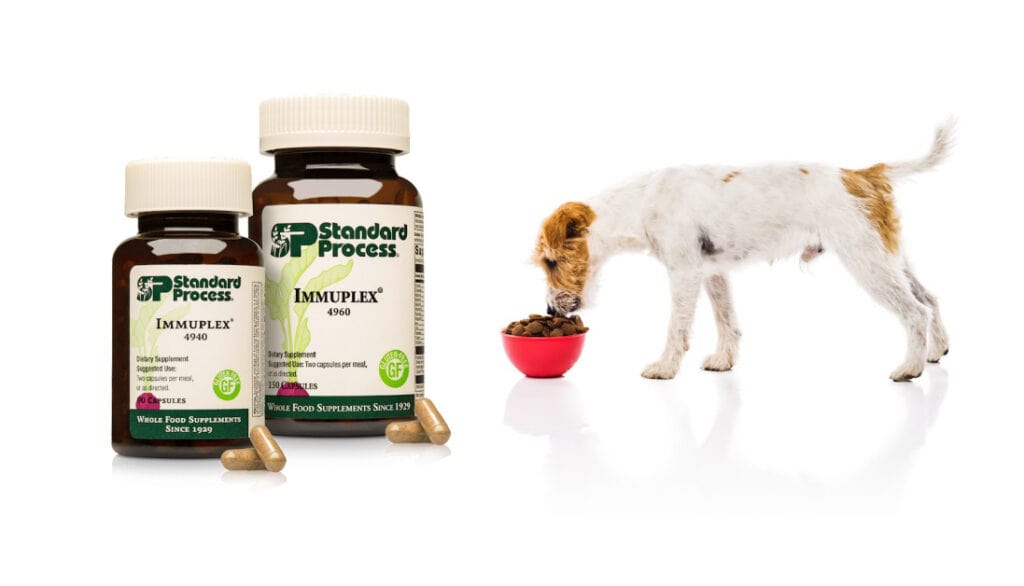
3. How to Use Standard Process Immuplex for Puppies?
- Dosage: The dosage will vary based on the puppy’s weight and overall health. It’s crucial to consult with a holistic veterinarian to determine the appropriate dosage for your puppy.
- Duration: For preventive measures, a short course might be recommended. However, for treating existing warts or other immune-related issues, a longer course might be necessary.
- Administration: Immuplex usually comes in capsule form. The capsule can be opened, and the contents mixed with the puppy’s food for easier administration.
4. Precautions and Considerations
- Consultation: Always consult with a holistic veterinarian before introducing any new supplement to your puppy’s regimen.
- Monitor for Reactions: While adverse reactions are rare, it’s essential to observe your puppy for any changes in behavior, digestion, or overall health after starting the supplement.
- Quality Matters: Ensure that you’re purchasing the genuine Standard Process Immuplex from a reputable source to guarantee its quality and efficacy.
Standard Process Immuplex offers a natural approach to bolstering the immune system, making it a potential tool in treating and preventing puppy warts. As with any supplement or treatment, individual results may vary, and it’s essential to approach its use with knowledge and guidance from a trusted holistic veterinarian.
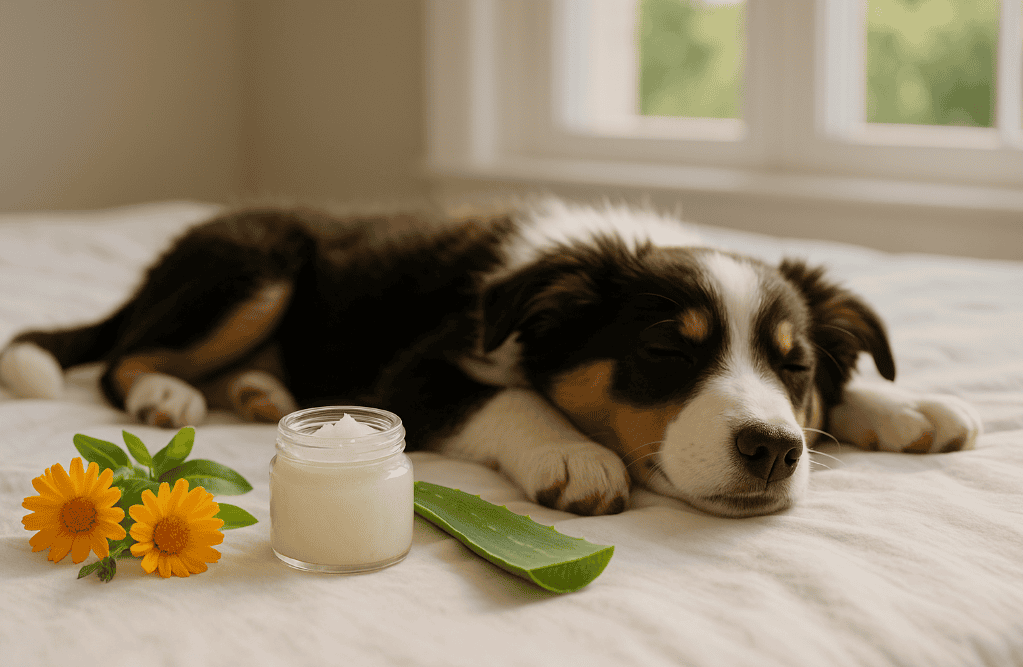
Prevention Tips from Holistic Vet
As the saying goes, “Prevention is better than cure.” This adage holds especially true in the world of holistic veterinary medicine, where we focus on maintaining overall health to prevent ailments rather than just treating symptoms. When it comes to puppy warts and other common canine concerns, here are some prevention tips from my holistic veterinary perspective:
1. Strengthen the Immune System:
- Balanced Diet: Ensure your puppy receives a nutritious, balanced diet. Fresh, whole foods that are free from additives and fillers can provide essential nutrients.
- Supplements: Consider adding immune-boosting supplements like Echinacea, Vitamin C, or probiotics, but always consult with a holistic vet first.
2. Maintain Good Hygiene:
- Regular Baths: Use a gentle, natural shampoo to keep your puppy’s skin clean and healthy.
- Clean Environment: Ensure your puppy’s living space, including bedding and toys, is cleaned regularly to prevent the spread of viruses.
3. Limit Exposure to Infected Dogs:
- Socialization: While socializing puppies is crucial, be cautious about exposing your young dog to others that might have visible warts.
- Shared Items: Avoid sharing toys, bowls, or bedding with dogs that have warts.
4. Manage Stress:
- Routine: Dogs, like humans, thrive on routine. Regular feeding times, walks, and play sessions can help reduce stress.
- Safe Spaces: Ensure your puppy has a quiet, comfortable space to retreat to if they feel overwhelmed.
5. Regular Check-ups:
- Holistic Vet Visits: Regular visits to a holistic vet can help catch potential issues early and provide guidance on preventive care.
- Vaccinations: While holistic vets often take a more conservative approach to vaccinations, it’s essential to discuss the best vaccination schedule for your puppy.
6. Natural Preventive Remedies:
- Topical Oils: Applying oils like coconut oil can keep the skin moisturized and act as a barrier against potential irritants.
- Herbal Teas: Herbs like chamomile can be used to make a mild tea that, when cooled, can be used as a rinse to soothe and protect the skin.
7. Educate Yourself:
- Stay Informed: The world of holistic veterinary medicine is vast. Regularly reading up on natural pet care can provide insights into new preventive measures.
- Workshops & Seminars: Consider attending workshops or seminars on holistic pet care to deepen your understanding.
Prevention, from a holistic perspective, is about maintaining a state of overall well-being. By focusing on the whole health of our puppies, from diet to environment, we can reduce the risk of ailments like warts and ensure our furry friends lead happy, healthy lives.
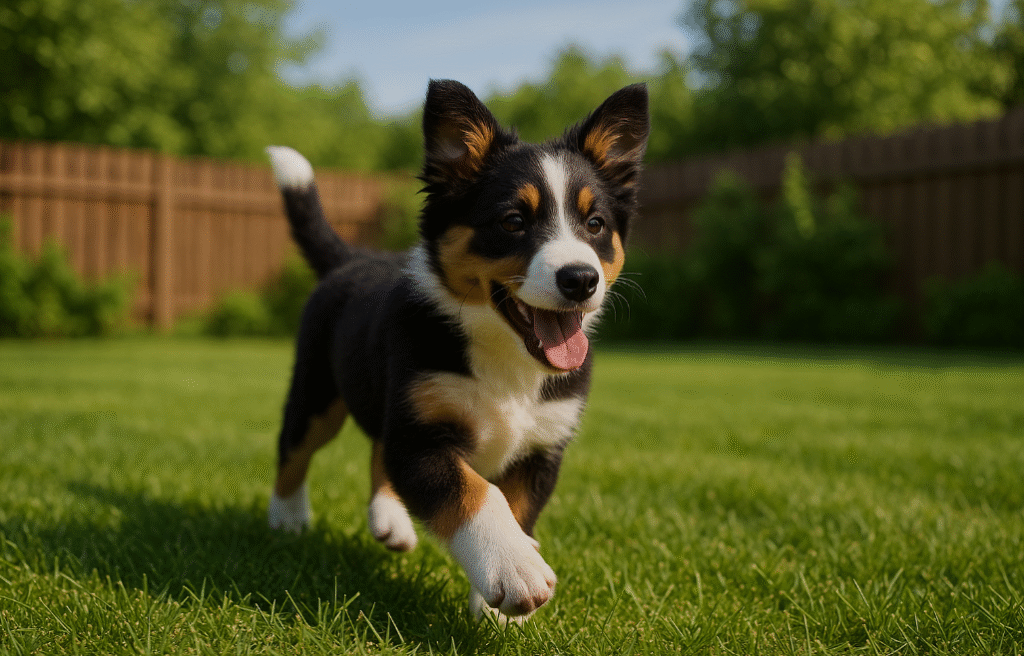
Conclusion
Navigating the world of puppy warts can be a daunting task for any pet owner. However, with the right knowledge and a holistic approach, we can address not just the symptoms but the overall well-being of our beloved furry companions. From understanding the nature of warts to exploring natural remedies and preventive measures, this guide aims to provide a comprehensive overview for those seeking gentle and effective solutions. As a holistic veterinarian, I believe in the power of nature, combined with informed care, to bring about the best outcomes for our pets. Remember, every dog is unique, and while these guidelines offer a general approach, always consult with a trusted veterinarian for tailored advice. Here’s to the health, happiness, and long, wagging tails of our cherished four-legged friends!
Frequently Asked Questions
Puppy warts, or Canine Papillomas, are caused by the Canine Papilloma Virus (CPV). They are contagious among dogs, especially those with weaker immune systems, like puppies.
Most puppy warts are benign and don’t cause any pain. However, if they grow in clusters or in areas where they might be rubbed (like near the collar), they can cause discomfort. Warts inside the mouth might make eating or drinking uncomfortable if they become too large.
In many cases, puppy warts will resolve on their own within a few weeks to months as the puppy’s immune system matures and combats the virus. However, the duration can vary based on the dog’s overall health and immune response.
It’s essential not to use human wart treatments on puppies without consulting a veterinarian. Many human products contain ingredients that might be harmful or toxic to dogs.
It’s a good idea to limit your puppy’s interaction with other dogs while they have visible warts, as the condition is contagious among dogs. Once the warts have cleared, and with a vet’s approval, you can resume regular social activities.
